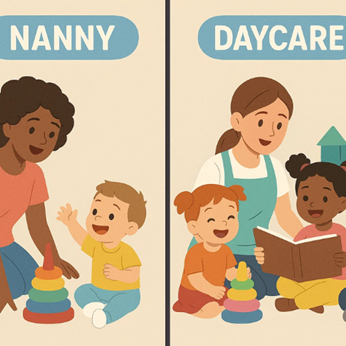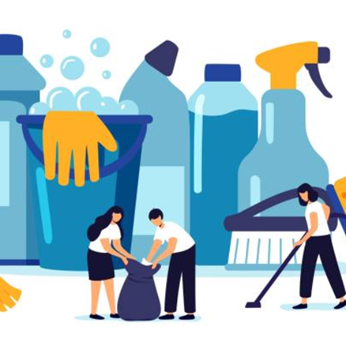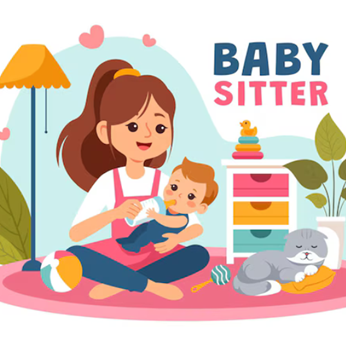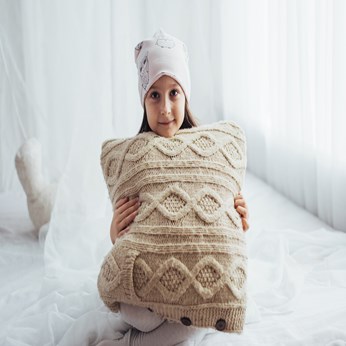How Can A Babysitter Care For Kids With Medical Conditions -1
When you are babysitting a child with some medical condition you may be more focused on what to do rather than having fun. It is best in the interest of the babysitter to know about the child's health condition by asking parents and others the right questions to prepare yourself for time together. I will be covering some of these conditions.
Allergies
It is found that kids could be allergic to so many things starting from food, to pets, to insect stings and pollen, with some of these allergic reactions proving to be life threatening. It will help to know in advance what is to be avoided and the steps to be taken in case of a serious reaction.
The babysitter should ask the parents the following questions:
1) What are the things the child is allergic to and should be avoided?
2) What are the symptoms of the allergic reaction and has it turned serious for the child?
3) What is the treatment for an allergic reaction? Does the child have an epinephrine injector and how do I use it?
4) Is the child allergic to one food or to more than one food and what are they?
It would help to ask the parents if certain places are triggers that a child should avoid. If the child is allergic to pets it would help to ask parents if they should avoid taking them to a friend’s house that has a pet and instead ask him/her to come and play at their house. In case of seasonal allergies, it would help keeping the child indoor at those times of the year when the child is allergic to pollen and climatic changes.
The babysitter should look out for rare but serious allergic reactions that include tightness or swelling in the throat; trouble swallowing and speaking; wheezing, hives, or skin swelling; a fast heartbeat or pulse; and dizziness. Use an epinephrine auto injector immediately and call 911 right away.
Asthma
Children with asthma attacks have flare-ups that tighten the muscles around the tiny airways making it difficult to breathe; the triggers for these flare-ups could be anything from climatic changes to animals and being around with smokers.
It is best for babysitters to ask parents the following questions:
1) What are the triggers of the child’s asthma?
2) What kind of activities the child can do and what is to be avoided?
3) What are the warning signs that the child is having an asthma attack?
4) What is the course of action if the child has an asthma attack?
5) What does the child use when he has an asthma attack – does he use an inhaler or any other medication. Show me how to use any equipment that may be needed.
6) Should I call you first or give the medication to the child when the child has an asthma attack?
Ask the parent to suggest any activities that the child can engage in; it is found that even exercise can be a common trigger, while some may not be affected by running around and being active.
Look for signs of flare up like a lot of coughing, tightness or pain in the chest.
I will be soon coming out with babysitting for more medical conditions.
Image Courtesy: Google
Take the next step toward your goals
Share your requirement and find the best care providers in your area
-
Looking for a caretaker’s job? Build your profile and get in touch with families in your vicinity.
-
Discover nannies, babysitters, cooks, housekeepers, pet sitters, and elder care under one roof.
-
Get all the support you need to run a successful care center.
-
Search for appropriate centers near you depending on your needs.
Care Corner Insights: Blog Library

Nanny vs. Daycare in Naperville, IL: What Works Best for Indian Working Couples?
Hey Naperville Parents! Balancing work and family life is no small feat—especially for Indian working couples trying to juggle careers, household responsibilities, and parenting. One of the biggest decisions you’ll face? Choosing between a nanny or

Housekeepers in Sugar Land, TX: Deep-Cleaning Checklists for Indian Homes
Housekeepers in Sugar Land, TX: Deep-Cleaning Checklists for Indian Homes Indian cooking = flavor + spices + love… but also oil splatters and stubborn stains. Time to reset! Degrease stovetops, chimneys, and exhaust fans. Scrub countertops, tiles,

12 Easy After-School Snack Ideas for Kids Who Get Hungry Quickly
School’s out, and the hunger hits hard! If your little ones come home ravenous and ready to raid the kitchen, you’re not alone. After-school snack time is prime time for refueling, recharging, and maybe even sneaking in a little nutrition. So here ar

Vegetarian Home Cook Services in Sunnyvale, CA: North & South Indian Meal Prep for Busy NRIs
Between work, family, and daily responsibilities, finding time to cook fresh meals can be difficult. That’s when a vegetarian home cook service in Sunnyvale makes life easier—bringing authentic North and South Indian dishes straight to your table. T

Hiring a Live-In Nanny in Plano, TX: A Practical Guide for NRI Households
For NRI families living in Plano, TX, raising children while managing work and household responsibilities can feel overwhelming. Many parents find that hiring a live-in nanny provides the right balance of support, convenience, and cultural comfort. U

Daycares in Fremont, CA for Indian Toddlers: Curriculum, Food Policies & Waitlists
You’ve probably met them — the parents at the park chatting about Montessori vs. play-based learning while handing their toddler a homemade paratha. The ones who ask every daycare in Fremont if they serve vegetarian meals. And yes, the ones who have

Babysitters in Jersey City, NJ for NRI Parents: Last-Minute, Weekend & Evening Options
You’ve probably seen them — the parents juggling grocery bags in one hand and a phone call to grandma in India in the other, while trying to keep their toddler from running into the road. The ones who cancel dinner plans because the babysitter bailed

Best Nanny Services in Edison, NJ for Indian Families: Costs, Language, and Cultural Fit
Edison, NJ, is home to one of the largest Indian communities in the U.S., and finding a nanny here often means looking for more than just childcare skills. For Indian families, cultural understanding, language fluency, and traditional values play a b

What Is Helicopter Parenting? How It Affects Children and Ways to Avoid It
You’ve probably seen them. The parents at the playground who shadow every move, wiping invisible germs off the slide before their child touches it. The ones who fill out job applications for their teens. And yes, the ones who email college professors

Are Weighted Blankets Safe for Children? Pros and Cons Explained
Weighted blankets have become a cozy trend in recent years. From helping adults sleep better to calming anxiety, they’ve earned a spot in many households. But when it comes to kids, especially the little ones, parents often ask: Are weighted blankets